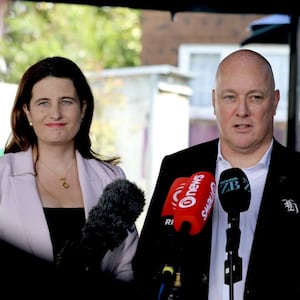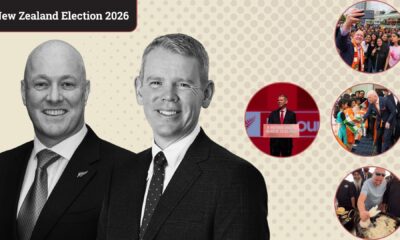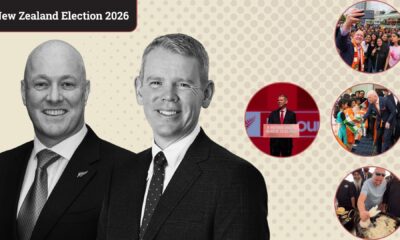Business
Labour Retains Economic Confidence as National Faces Decline

New polling data reveals a shift in voter perceptions regarding economic management in New Zealand, with the Labour Party emerging as the preferred choice for addressing the pressing issue of the cost of living. The latest findings from the Ipsos Issues Monitor, a quarterly survey assessing New Zealanders’ concerns and their perceptions of political party competencies, indicate that 60% of respondents view the cost of living as their primary concern. This issue has consistently dominated the poll since February 2022, showing a five-point increase in concern from the previous survey.
The Ipsos survey highlights a significant decline in support for the National Party regarding economic issues. Voters now express a stronger belief that Labour is better equipped to manage the challenges arising from the rising cost of living. This sentiment reflects a broader trend in the political landscape, where economic management remains critical to voter decision-making.
Labour’s continued focus on economic policies appears to resonate with the public, particularly as inflation and living costs remain elevated. The party’s strategies to mitigate these challenges have garnered attention, positioning it as the leader in economic discussions among voters.
In contrast, the National Party has faced scrutiny over its handling of economic matters, leading to a decline in perceived effectiveness. The shift in voter confidence suggests that the party will need to recalibrate its messaging and policies to regain ground among constituents who prioritize economic stability and affordability.
The Ipsos Issues Monitor serves as a vital resource for understanding the evolving political landscape in New Zealand. As the survey continues to track public sentiment, it will provide insights into how the major political parties adjust their strategies in response to voter concerns.
With the cost of living remaining the foremost issue, both parties are likely to intensify their focus on economic policies in the lead-up to future elections. The ability to effectively address these concerns will be crucial in shaping voter preferences and determining the political climate in the months ahead.
-

 Top Stories1 month ago
Top Stories1 month agoCommunity Mourns Teens Lost in Mount Maunganui Landslide
-

 Entertainment6 months ago
Entertainment6 months agoTributes Pour In for Lachlan Rofe, Reality Star, Dead at 47
-

 World3 months ago
World3 months agoPrivate Funeral Held for Dean Field and His Three Children
-

 Top Stories3 months ago
Top Stories3 months agoFuneral Planned for Field Siblings After Tragic House Fire
-

 Sports6 months ago
Sports6 months agoNetball New Zealand Stands Down Dame Noeline Taurua for Series
-

 Entertainment1 month ago
Entertainment1 month agoJulian Dennison Ties the Knot with Christian Baledrokadroka in New Zealand
-

 Entertainment5 months ago
Entertainment5 months agoNew ‘Maverick’ Chaser Joins Beat the Chasers Season Finale
-

 Sports6 months ago
Sports6 months agoSilver Ferns Legend Laura Langman Criticizes Team’s Attitude
-

 Sports4 months ago
Sports4 months agoEli Katoa Rushed to Hospital After Sideline Incident During Match
-

 Sports4 months ago
Sports4 months agoAll Blacks Star Damian McKenzie and Partner Announce Baby News
-

 Sports3 months ago
Sports3 months agoNathan Williamson’s Condition Improves Following Race Fall
-

 Politics5 months ago
Politics5 months agoNetball NZ Calls for Respect Amid Dame Taurua’s Standoff



















